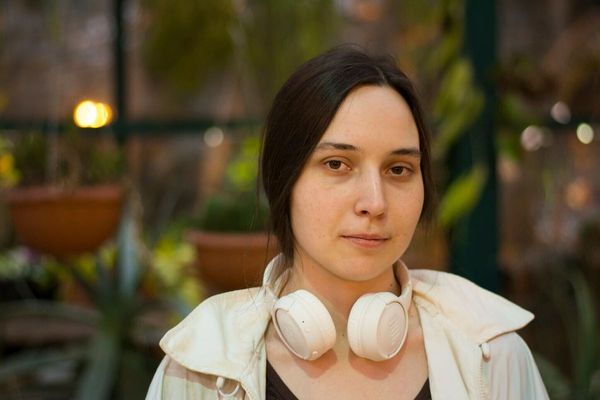
One city is a financial hub that is also among the world’s most expensive metropolises. The other is crowned the world’s wealthiest gambling city. Yet Hong Kong and Macau, two cities associated with wealth and riches, hold a dubious distinction in the justice system: they put women behind bars at a shockingly high proportion.
Women comprise 20.8% of Hong Kong’s prison population, higher than any major jurisdiction in the world, according to the latest World Prisons Brief data compiled by the Institute Centre for Prison Studies. The figure has increased slightly since the ICPS released the World Female Imprisonment List report in 2015, which put the share of women prisoners in the former British colony at 19.4%.
In neighbouring Macau, 14.7% of its prison population are women – the fourth highest. Back in 2015, the percentage was even higher at 17.7% – ranked second in the world behind Hong Kong.
The situation is astonishing, considering the two cities’ special political status. Under China’s “one country, two systems” rule, Hong Kong and Macau are semiautonomous special administrative regions: they maintain bigger civil freedom than mainland China, as well as a more independent, and thus commonly regarded as better, justice system.
The high proportion of female prisoners in Hong Kong and Macau is in fact emblematic of the situation in Asia. Four of its countries and territories – Hong Kong, Laos and Myanmar and Macau, in that order – are ranked in the top five. In Asia, 6% of all prisoners are women – the highest rate in the world, and surpassing the global average of 4.4%.
Female incarceration has risen in all continents, with more than 700,000 women and girls detained in penal institutions around the world. Between 2010 and 2015, the number of female prisoners grew by 50%, much faster than that of male prisoners. In contrast, the world’s overall prison population increased by merely around 20%.
Hong Kong and Macau’s penal systems not only have a big share of female prisoners, but the majority of incarcerated women are non-locals. Foreign women account for more than half of Hong Kong’s 1,773 female inmates, and come primarily from mainland China, Vietnam and Indonesia, according to the data from the city’s correctional services department.
The proportion is even higher in Macau: nearly 80% of 193 women jailed there are foreign citizens, according to the data from the correction services bureau in the former Portuguese colony. The top three countries of origin are mainland China, Vietnam and the Philippines.
Despite the stunning numbers, female prisoners in the two cities are usually sentenced for nonviolent crimes. Drug-related crime is one of the top convictions that lands local Hong Kong women behind bars. Immigration violations – common among foreign sex workers – are behind the high number of female prisoners, but drug trafficking convictions are said to be rising in the city’s female prison population.
Two of the most common convictions among foreign female prisoners in Macau are immigration offences – also mostly due to sex workers – and drug trafficking. The latter is also a common conviction for local female inmates.
The prevalence of drug trafficking convictions in Hong Kong and Macau reflects the global trend: a growing number of women are arrested and jailed for drug-related crimes, most likely as low-level drug mules. Global data shows that women offenders often come from marginalised backgrounds: they have low levels of formal education and no stable employment. Single motherhood and a history of domestic abuse also heighten the risks.
Women with vulnerable backgrounds are easy prey for drug syndicates and human-trafficking rings. Migrant workers are duped or forced to transport drugs or work in the sex industry. Underage girls, many from Indonesia, are unknowingly given false passports to work as domestic helpers. In either case, if they are caught or saved by the authorities, they are likely to be prosecuted instead of being treated as trafficking victims.
The situation in Hong Kong and Macau underscores a major flaw in the conventional justice system: by being gender neutral, it is blind to the gender biases that are systemically stacked against women.
Also overlooked is the impact on children and families. The incarceration of mothers, especially single mothers, can be devastating as they are often both the primary carer and the breadwinner of the family. Gloria Lai, senior officer at the International Drug Policy Consortium, based in Bangkok, calls on prosecutors and judges to recognise the “specific situation of women, especially if they have children and dependents” in their sentencing. “They should consider the socio-economic situation and the culpability of the women,” she says.
Macau adopted an anti-trafficking law in 2008, but it still needs to do much more to protect trafficking victims, especially foreign ones. Meanwhile, Hong Kong is lagging behind. It still refuses calls to introduce a similar law, saying that kind of crime is “rare” in the city.
Puja Kapai, associate professor of law at the University of Hong Kong, believes the potential to address the gendered aspect of the trafficking trade is “immeasurable”.
“The fact that that this is not a problem acknowledged as such, despite its scale and prevalence in the region, speaks volumes about its unfortunate invisibility and intractability as a ‘gendered’ problem,” she says.
Hong Kong and Macau can no longer ignore how their justice systems are disproportionately affecting women, especially vulnerable women. It is time for them to seriously address the “feminisation” of their prison population.







